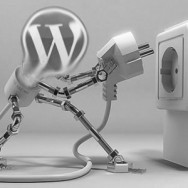WordPress
Enable/disable comments on all pages or posts at once
Have you ever wanted to turn on comments for all your pages at once? Or perhaps managing comments is too much of a pain, so you decide you want to disable comments for all of your WordPress blog posts easily. Change Posts Individually The most obvious way is, when editing a page or post, to scroll down to the “Discussion” section and check or uncheck the “Allow comments” box. Don’t see the “discussion” section on the page/post edit screen? At the top of the screen on the right side there is a “Screen Options” button. Click it and check the box for “Discussion” to make those settings visible. Change a Group...
Read MorebbPress causes white screen on website
If you’ve tried to install bbPress and buddyPress on the same website, possibly experimenting with forum alternatives, you may run into some strange behavior. This can occur even if one of the plugins is deactivated or uninstalled. The strangest I saw as the website being completely blank—a white screen. The admin console worked fine, but the website proper did not, and even though display_errors in php.ini was set to “On,” no error messages were displaying. Just a white screen. If I deactivated the bbPress plugin, the problem disappeared. Apparently bbPress 2.0 can have some conflicts with buddyPress. Uninstalling the plugin isn’t enough; a...
Read MoreExclude a Page From Search
In some themes, you may have special pages or posts that only appear in a particular location in the theme—perhaps a blurb on the home page, for example. You may be surprised to see this page appear when people search the posts of your site! There are two main ways to hide specific posts from searches: you can modify the PHP code for your theme, or use a plugin. Write Code to Remove Pages From Search Results WPMods has an excellent tutorial on excluding posts and pages from search. You can see the full explanation on their site, but I’ll copy and paste the relevant code here for those who are comfortable customizing PHP code. Why hard-code it instead of...
Read MoreWhy are There Spaces In Front of my Post Title?
Have you ever noticed your site title looks like this? ” My Post | My Website” instead of “My Post | My Website” Somewhere in the PHP code of your website (which you can find under Appearance > Editor), you will likely find calls to the wp_title() function. A sample call may look like this: That results in showing the blog title with a separator (the ‘|’ character) to the right of the title… with a space before and after. In this case, the code is assuming that your blog name would come after that. The problem is when you make a call like this: That has no separator character (perhaps the site only shows the post title, or a...
Read MoreWhen to Use a WordPress Plugin and When Not To
WordPress Plugins are immensely useful. The fact that WordPress has so many plugins is one of the reasons I, as a web designer, favor WordPress for small business websites. However, it’s important to be aware that plugins come with their own share of problems. Let’s examine the advantages and disadvantages; sometimes it’s better to do without, or to actually hard-code a fix or find another approach instead of using a solution. Advantages of Plugins They’re very easy to install They’re the most user-friendly; as a web designer, I like to set up plugins so the client can easily turn it off or change the settings. Someone else is maintaining...
Read MoreChanging Your WordPress Site URL
When you move your WordPress site, letting the site know about its new URL can be a hassle, but can lead to many types of errors if you are not careful: the site may not load at all, only the home page may load, images may not load properly, internal links may be broken, and so on. Here is a checklist for the next time you have to do this. There are two main ways to do this; one requires access to run SQL queries (usually by using the PHPMyAdmin tool in your web host’s dashboard, which is typically CPanel), and the other requires editing files through FTP and using a plugin. No matter which method you use, make sure afterwards to login to...
Read More






